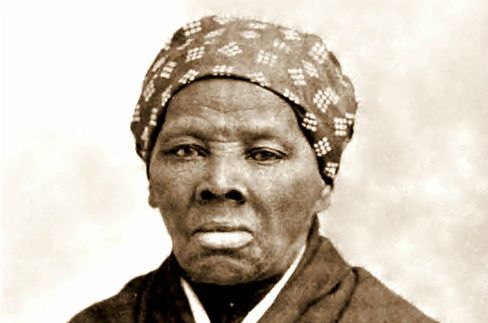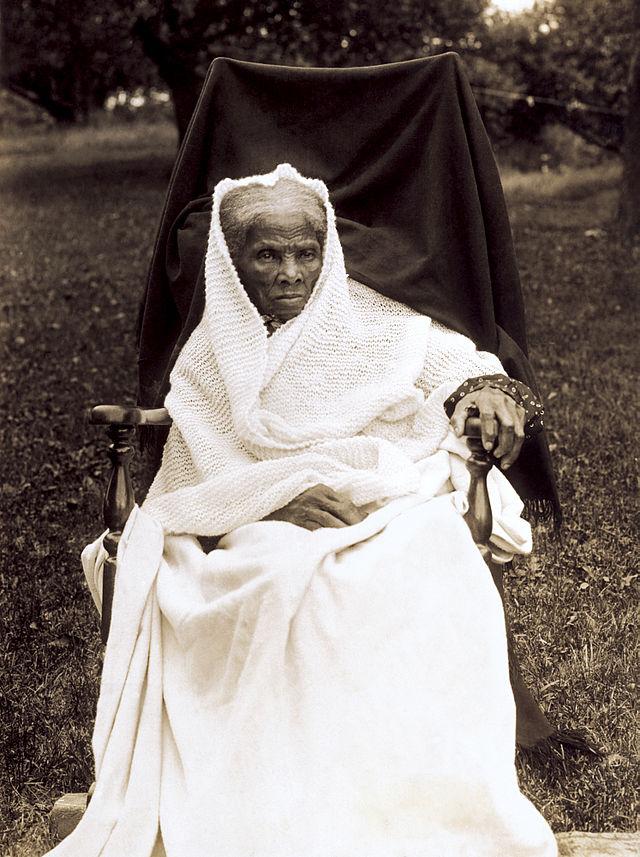Harriet Tubman led hundreds to freedom
February 25, 2015

IMAGE / Public Domain
Mrs. Harriet Tubman was a conductor on the Underground Railroad. She helped over 300 slaves escape from slavery.
One of the most prominent black women in history was Harriet Tubman.
Tubman was born in Dorchester County, Md., with the name Araminta Harriet Ross. Although her birthdate is not known, it was most likely between 1820 and 1825.
Her parents, Harriet “Rit” Green and Ben Ross, were enslaved to Mary Brodess and Anthony Thompson, respectively. (Thompson later married Brodess, becoming her second husband.)
Tubman was born into a family of nine. Three of her sisters were sold to nearby plantation owners.
However, when Brodess and Thompson attempted to sell her youngest brother, Tubman’s mother stepped up and refused to let them. This set an example for the young Harriet Tubman.
In 1844, Harriet Ross married John Tubman, a free man, becoming Mrs. Harriet Tubman.
After her father was freed at age 45 due to the request in a previous owner’s will, Tubman knew it was time to leave the plantation herself.
On Sept. 17, 1849, Tubman escaped the plantation with two of her brothers, Henry and Ben, with the notion to flee to Philadelphia.
When Ben and Henry returned to the plantation out of guilt, Tubman left for Philadelphia on her own.
She traveled through secret routes and an elaborate web of safe houses referred to as the Underground Railroad.
Later, Thompson and Brodess put out a reward of $300 for her return.
In 1850, Tubman began to help slaves escape from the South to the North.
Although it was only her second trip, she was considered to be an official “conductor” of the Underground Railroad in September 1850.

Mrs. Harriet Tubman sits in a chair outside at her home in Auburn, New York.
In 1851, Tubman made her third trip to the South. In this trip, she planned to take her husband John Tubman north.
Much to her surprise, John had remarried and did not want to leave his home.
By December of 1860, Tubman’s career as a conductor was over. She made 19 trips and helped over 300 slaves escape, never losing a passenger.
After her final trip to Maryland, Tubman moved to Canada.
In 1861, at the beginning of the Civil War, Tubman moved back to the United States and enlisted into the Union Army as a contraband nurse. These nurses cared for fugitive slaves, and many of the escaped slaves aided the Union Army as laborers.
After the war ended, Tubman returned to her home in Auburn, New York.
In 1869, Tubman married Nelson Davis. They shared a happy marriage for the next 19 years until he passed away.
Tubman died on March 10, 1913. She was buried in Fort Hill Cemetery in Auburn.
Throughout her time as a conductor, Tubman knew what she was risking, but still elected to take the trips to help other enslaved people move to safety.
Tubman’s actions sometimes earned her severe punishments from her masters.
After being struck in the head with a 2-pound weight for refusing to help restrain a runaway slave, Tubman suffered from seizures, severe headaches, and narcoleptic episodes for the remainder of her life.
Tubman changed the lives of many slaves during her time. She has also shaped the way many people look at Black History Month.
Students know that Tubman was an important person in black history.
Sophomore Taylor Judson believes Tubman was important because she helped many people escape both slavery and death.
Senior Makayla Roster said, “Harriet Tubman was important to our country’s culture and our history. She showed us that our skin color doesn’t make us different as a person.”
Roster said the world would be different today if Tubman had only saved herself.
Harriet Tubman was a large influence for both black history and American history.
BLACK HISTORY MONTH SERIES: This is the third story in a series written by The Eclipse in honor of Black History Month.